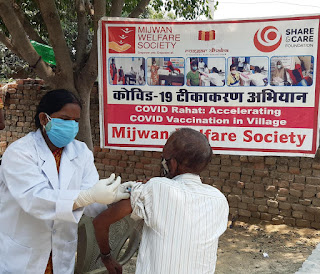During India’s battle with the onslaught of the COVID-19 pandemic, many workers have lost their livelihood to the virus. From employees working in the biggest MNCs to the minimum wage workers, the virus has chosen its victims without a bias. In a report by International Labour Organization’s (ILO) ILOSTAT, India’s unemployment rate in 2020 had reached 7.11%, the highest in the past 30 years. This rate has shown no sign of slowing down as the Centre for Monitoring Indian Economy (CMIE) has reported that the current monthly unemployment rate of the country stands at a humungous 12% as of 13 June 2021. The reason behind this skyrocketing unemployment is the enormous rate at which low-wage workers are getting cut from their jobs, which includes those who have migrated to other counties in search of better employment.
According to the International Labour Organization, over 30 million Indians are living abroad, with the Gulf area and Southeast Asia alone employing over 90% of that workforce, the majority of whom are poor and semi-skilled. Such a high number of migrants have also made India the top recipient of remittances in the world with nearly US$62.7 billion in 2016. However, the foreign migrants also make up the most economically vulnerable group. In more economically developed countries, foreign migrant workers enjoy only a few rights and very little job security and therefore are the most likely to have been the first to be laid off, to have had pay cuts, or to have not been paid at all for previous work. Such economic exploitation coupled with the pandemic have made foreign migrants the worst-hit workers.
While the now unemployed migrants, currently at home, would have been hoping for measures from the government to uplift them out of their misery, the new guidelines passed by the government on June 7th have only made it significantly worse for them. As per the announcement, any individual traveling abroad for either education or jobs will have to link their passport with their vaccination certificate. While it seems reasonable to do so, the shortcomings of this rule adversely affect the most vulnerable.
Without linking the two documents, migrants will be forced to stay back in India till they complete their vaccination process. Considering that the vaccination drive is moving at a snail’s pace and the availability of vaccines is constantly under fire, the migrants will have to wait for weeks, if not months, before they get the opportunity to get their first jab of the vaccine. Such a long wait, without a source of income, might not be feasible for many migrants and will put extreme pressure on their livelihood. While migrants will be free to travel to other countries in search of jobs after their vaccine dosage, the same is not recommended as per the vaccination protocol. Takers of the first dose are advised to take their second dosage within 6 to 14 weeks, depending on their vaccine, to complete their vaccination process which will only result in a longer wait. Notably, many of these workers belong to Uttar Pradesh and Bihar. This is a major cause for concern as data from Union Health Ministry has shown that the two states are the worst performers with respect to their vaccination rate, with only 1.67 % of Uttar Pradesh’s and 1.69% of Bihar’s population fully vaccinated as of May.
If the rate of vaccination is going to remain stagnant at its current speed, the chances of migrants leaving for a foreign land, anytime soon, seem grim. Regrettably, such a situation will cause long-lasting effects on not just the household, but also the society. Lack of finances will eventually cause restraints on a family’s ability to provide formal education to their children, to enjoy reliable healthcare facilities, and live a healthy lifestyle.
There is a desperate need for intervention by the government into matters specific to foreign migrants. While NGOs like Mijwan Welfare Society have tirelessly made efforts to help such communities access vaccination centers, and provided them with rations and livelihood assistance, it is important that government institutions start playing a greater role in doing the same. Adding migrants to the priority list to ensure their early vaccination is bound to be a good first step. Otherwise, easing limitations on their travel by doing away with their vaccinations in India and providing the same in the country of their employment, with the assistance of that government, will also help relieve some pressure off India’s crumbling vaccination infrastructure, all while safeguarding the health and interest of every citizen.






No comments:
Post a Comment